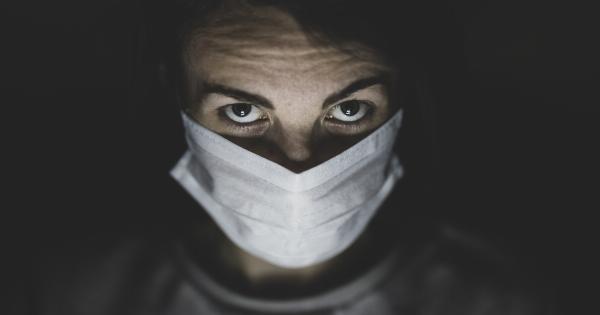Trichomoniasis is a sexually transmitted disease (STD) caused by a parasite called Trichomonas vaginalis. It is one of the most common STDs worldwide, with an estimated 156 million cases reported annually.
Although it can affect both men and women, women are more likely to get infected. As with any STD, trichomoniasis can have a significant impact on a person’s health, both physically and emotionally.
Physical impact of trichomoniasis
Trichomoniasis often presents with no symptoms, which makes it challenging to diagnose and treat early. However, when symptoms do appear, they can range from mild to severe. In women, the most common symptoms include:.
- Vaginal discharge that may be frothy, yellow-green or foul-smelling
- Genital itching and redness
- Pain during urination or sexual intercourse
- Lower abdominal pain and discomfort
Men, on the other hand, are mostly asymptomatic carriers of trichomoniasis. However, in rare cases where symptoms manifest, they may include:.
- Urethral discharge that may be thin and clear or white and frothy
- Pain during urination or ejaculation
- Burning and itching of the penis
Untreated trichomoniasis can lead to more severe complications. In women, it can cause cervicitis, which is the inflammation of the cervix.
It can also increase the risk of acquiring other STDs, such as HIV, and lead to pelvic inflammatory disease (PID), which can cause chronic pelvic pain, infertility, and an increased risk of ectopic pregnancy. In pregnant women, trichomoniasis can result in preterm birth, low birth weight, and premature rupture of membranes.
Men, on the other hand, are less likely to develop complications from trichomoniasis. However, if left untreated, it can lead to prostatitis, which is the inflammation of the prostate, and epididymitis, which is the inflammation of the epididymis.
Emotional impact of trichomoniasis
In addition to the physical symptoms of trichomoniasis, it can also have a significant emotional impact on a person’s life. A diagnosis of an STD can be distressing and cause anxiety, shame, guilt, and depression.
It can also lead to relationship problems and affect a person’s self-esteem and sexual confidence.
There is also the stigma attached to STDs, which can make it difficult for some people to seek treatment and talk openly about their condition.
This can further exacerbate the emotional impact of trichomoniasis and affect a person’s ability to cope with their diagnosis.
Treatment and prevention
Trichomoniasis is treatable with antibiotics and antiprotozoal medications. Treatment usually consists of a single dose or a few doses of medication, depending on the severity of the infection.
Sexual partners of infected individuals should also be treated to prevent reinfection and the transmission of the disease.
Prevention is key in reducing the risk of acquiring trichomoniasis and other STDs. The following measures can help prevent the spread of the disease:.
- Using condoms during sexual activity
- Limiting the number of sexual partners
- Getting regular STD screenings
- Abstaining from sexual activity
Conclusion
Trichomoniasis is a common and treatable STD that can have significant physical and emotional impacts on a person’s health. Early diagnosis and treatment are essential in preventing complications and the spread of the disease.
Education and awareness are also important in reducing the stigma associated with STDs and promoting healthy sexual practices.































